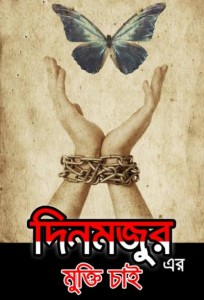Almost 98% people of Bangladesh are Bengalis and they speak the Bangla language. The minorities include Chakmas, Khasi, Santhal and other tribes numbering more than a million (about 1.2% of total population) who mostly live in the various hilly regions. Chakmas are ethnically Tibeto-Burman, and are closely related to the Himalayan tribes. According to history, they are originally from Arakan (present Rakhine State of Burma) who hundreds of years ago wandered and settled in different parts of India and Bangladesh.
In recent months many Bangladeshi indigenous people have taken the streets holding meetings, human chains and rallies, demanding constitutional recognition of their population. The 'indigenous' debate arose after some remarks of a special parliamentary committee working to amend the present constitution reverting back to the 1972 constitution. There was no reference of tribal or indigenous people in Bangladesh’s first constitution of 1972 where it was mentioned that Bangladesh would be the land of Bengalis.
The parliamentary committee said that it would recommend recognizing them as “small ethnic groups” and questioned: “Would Bangalees [Bengalis] be termed ‘intruders’ or ‘invaders’ if the ethnic groups are called adivasi (indigenous)?”.
The state minister for cultural affairs Pramod Mankin said:
Monjurul Haque at the Indigenous Bangla blog writes [bn] about the complexity of the situation:
It may be mentioned here that the tribals in Bangladesh have been subjected to human rights abuse for long by the Bengali settlers.
Shimon Baskey mentions [bn] what the people of the hills think on this issue:
Sarkar Amin recognizes [bn] the plights of these people:
Jewel Bin Jahir reminds [bn] how the indigenous minorities feel as their language, culture and beliefs are neglected in the constitution:

The debate further escalated as the foreign minister of Bangladesh commented recently that the term "indigenous" for the people of the hills in Bangladesh is a misnomer:
She also said:
She reminded about the 4000 year old tradition of the Bengalis in this land:
Biplob Rahman, a journalist and a blogger protests [bn] the government's stand that there is no indigenous people in Bangladesh. He quotes from Chakma King and member, UN Permanent Forum On Indigenous Issues, Debashish Roy's recent rebuttal [bn]:
Biplob reminds that the incumbent Prime Minister Sheikh Hasina, had given statements on the International Day of the World's Indigenous People several times terming the people of the hills as indigenous people.
He quotes an article of a local newspaper [bn], where it was reported [bn] that:
Mithusilak Murmu notes [bn] that at present there are certain quotas in the Government services and public education institutions for the indigenous people and wonders whether the present proposal of the Government will lead to change in the practice of the issuance of “indigenous certificates” for the population of the hills.
Around 370 million indigenous people in 70 countries of the world are subject to marginalization and mistreatment. These people in Bangladesh and elsewhere are facing similar problems and are fighting for their identity, land and way of life.
First Published in Global Voices Online
Language map of Bangladesh - Image courtesy Wikipedia. Used under a CC License
In recent months many Bangladeshi indigenous people have taken the streets holding meetings, human chains and rallies, demanding constitutional recognition of their population. The 'indigenous' debate arose after some remarks of a special parliamentary committee working to amend the present constitution reverting back to the 1972 constitution. There was no reference of tribal or indigenous people in Bangladesh’s first constitution of 1972 where it was mentioned that Bangladesh would be the land of Bengalis.
The parliamentary committee said that it would recommend recognizing them as “small ethnic groups” and questioned: “Would Bangalees [Bengalis] be termed ‘intruders’ or ‘invaders’ if the ethnic groups are called adivasi (indigenous)?”.
Members of indigenous communities demanded their recognition in the constitution as “indigenous people” instead of tribal or proposed “minority ethnic group” at central Shahidminar in Dhaka, Bangladesh. Image by Abu Ala, Copyright Demotix, 29 April 2011.
The state minister for cultural affairs Pramod Mankin said:
“There is no question that indigenous people would receive constitutional recognition. The debate is in how will they be recognised.”
“The government is reluctant to recognise indigenous people as “indigenous” as it questions ethnicity of the country's native Bangalees.
Monjurul Haque at the Indigenous Bangla blog writes [bn] about the complexity of the situation:
শাসকদের পক্ষে বলা হচ্ছে- ‘পাহাড়িরা পাহাড়ের আদিবাসী নয়’! ‘বাংলাদেশের সংবিধান মানার কারণে পাহাড়েও বাঙালিদের সমান অধিকার’। ‘বাংলাদেশের সংবিধানের আলোকেই পাহাড়িদের বাংলাদেশের নাগরিক হিসেবে সমতলের নাগরিকদেরকেও মেনে নিতে হবে’। অসহায় গরিব সেটেলারদের ধরে ধরে পাহাড়ে পাঠানোর পর বলা হচ্ছে-‘পার্বত্য চট্টগ্রামের চাকমারা বার্মার আরাকান প্রদেশ থেকে এসে এদেশে বসতি স্থাপন করেছে এবং তারাই বহিরাগত!’
The authorities are telling - “The people of the hills are not indigenous people. As constitution of Bangladesh applies everywhere, Bengalis have equal rights to lands in the hills." The people of the hills are also citizens of Bangladesh (not indigenous) - that is also reminded in the constitution. They are sending destitute Bengali settlers to the hills on the ground that “the Chakmas have settled in the hills from their origin – Arakan region of Barma, so they are also settlers”.
It may be mentioned here that the tribals in Bangladesh have been subjected to human rights abuse for long by the Bengali settlers.
Tribal indigenous people of Bangladesh in the Chittagong Hill Tracts. Image by Anwar Hussain. Copyright Demotix 7/8/2010.
Shimon Baskey mentions [bn] what the people of the hills think on this issue:
আদিকাল থেকে আমাদের নিজস্ব ভাষা, সংস্কৃতি, কৃষ্টি, আচার-আচরণ একই, এর কোনো পরিবর্তন হয়নি। আমরা এই দেশের ভূমিজ সন্তান। আমাদের পূর্ব-পুরুষরা কারো জায়গায় বা অন্যকারো দ্বারা বসতি স্থাপন করেনি। তারা এই দেশের বন-জঙ্গল পরিষ্কার করে নিজেরা চাষের উপযোগী করে ওই অঞ্চলে প্রথম বসতি গড়েছে। দেশ বিভাগের সীমানা নির্ধারণ করার আগেই তারা বংশ-পরম্পরায় সে সব এলাকায় বসবাস করছে।
Since ages our own language, culture, beliefs and rituals are the same, nothing has changed. We are people of this land. Our forefathers did not settle in someone else's land or were inhabited there by someone. They were the first settlers by clearing forests and preparing lands for cultivation. They already had been living there for generations long before boundaries were demarcated.
Sarkar Amin recognizes [bn] the plights of these people:
মঙ-মঙ বান্দরবানের এক পাহাড়ে তোমার সঙ্গে পরিচয়। আমি বাঙালি তুমি পাহাড়ি। তুমি আর্টিস্ট। আমি কবিতা লিখি। আমাদের দ্রুত বন্ধুত্ব হলো। তোমার নিষ্পাপ হাসির আড়ালে কোনো কষ্ট কি ছিল বন্ধু?
সংকট আছে। পাহাড়ের জনতা জাতিসত্তার সাংবিধানিক স্বীকৃতি চায়। আদিবাসী হিসেবে অভিহিত হতে চায়। শান্তিচুক্তির ন্যায়সঙ্গত বাস্তবায়ন চায়। বাংলাদেশের শাসক শ্রেণী আদিবাসীদের শতভাগ সাম্যমূলক অধিকার দিতে এখনো আগ্রহী নয়। দুঃখ ও সংকটের এটাই মুল কারণ।
Mong Mong, I first met you in a hill of Bandarban. I am bengali and you are from a tribe. You are a painter and I am a poet. We become friends at once. Was there a pain deep inside your innocent smile? [..]
There is a crisis. The people of the hills want constitutional recognition of their population. They want to be termed as "indigenous". They want implementation of the peace accord. But the ruling elites of Bangladesh do not want recognition of equal rights of the people of the hills. This is the main reason of the pain and the crisis.
Jewel Bin Jahir reminds [bn] how the indigenous minorities feel as their language, culture and beliefs are neglected in the constitution:

আমরা আমাদের বিজু, বৈসু, কারাম, ওয়ান্না, সোহরাই দ্বারা নিজ নিজ শ্রেষ্ঠত্ব প্রমাণ করতে চাইনি। আমাদের সাংসারেক, লালেং, শারণা কেন্দ্রিক বিশ্বাস কখনো অন্যের উপর চাপিয়ে দেওয়ার চেষ্টা করিনি। আমাদের আচিক, চাকমা, ককবরক, ঠার, মুন্ডা, সান্তালী ভাষা দিয়ে জগতের অন্য কোন ভাষার উপর আধিপত্য প্রতিষ্ঠার চেষ্টা চালাইনি।
কিন্তু তারবাদেও আমাদের হাবা-জুম, জংলা-জঙ্গল সব দখল হয়ে যায়। আমাদের নিজ নিজ মায়ের ভাষা কোনঠাসা হয়ে পড়ে। আমাদের আপন আপন বিশ্বাস অশূচি হয়ে যায় দাপুটে বিশ্বাসের প্রতাপে।
We had not tried to prove our supremacy by our Biju, Baisu, Karam Wanna, Sohrai (festivals and rituals). We had not tried to impose our Sangsarek, Laleng, Sharna centric beliefs to anyone. We had not tried to overwhelm other languages of the world by our Achik, chakma, Kokborok, Thar, Munda, Santali languages.
But still our Haba-Zoom(plantations), forests and ditches are being dispossessed. Our mother tongues are being ignored. Our own beliefs are deemed as impure, illogical by influential and imposing beliefs.
The debate further escalated as the foreign minister of Bangladesh commented recently that the term "indigenous" for the people of the hills in Bangladesh is a misnomer:
"In the constitution, all minorities were recognised generically as minorities, and through the 15th amendment, the present government has categorised them as 'ethnic minorities' and no longer only as 'tribal' people."
She also said:
“Giving a special and elevated identity to enfranchise only 1.2 percent of the total population of 150 million by disentitling the 98.8 percent cannot be in the national interest of Bangladesh."
She reminded about the 4000 year old tradition of the Bengalis in this land:
“The ethnic Bengalees are not colonial settlers, neither are they foreigners or non-indigenous to their own native land and never will be.”
Biplob Rahman, a journalist and a blogger protests [bn] the government's stand that there is no indigenous people in Bangladesh. He quotes from Chakma King and member, UN Permanent Forum On Indigenous Issues, Debashish Roy's recent rebuttal [bn]:
সাংবিধানিকভাবে 'আদিবাসী' স্বীকৃতি দিলে মূল ধারা থেকে বিচ্ছিন্ন, প্রান্তিক ও অনগ্রসর এই ১ দশমিক ২ শতাংশ মানুষ তাদের প্রান্তিক অবস্থান জানানোর একটি আইনি ভিত্তি পাবে। এই মর্যাদা তাদের কোনো 'বিশেষ' সুবিধা দেবে না।
If the government recognizes “indigenous people” then this marginalized and underdeveloped 1.2% population will have a legal ground to fight for their rights. However, this recognition will not give them any special rights.
Biplob reminds that the incumbent Prime Minister Sheikh Hasina, had given statements on the International Day of the World's Indigenous People several times terming the people of the hills as indigenous people.
He quotes an article of a local newspaper [bn], where it was reported [bn] that:
জানা গেছে, 'আদিবাসী' অভিধা ব্যবহার করলে সরকারকে বিভিন্ন জাতিসংঘের সনদে স্বাক্ষর করতে হয়। সে ক্ষেত্রে পার্বত্য চট্টগ্রামসহ দেশের আদিবাসী অধ্যুষিত অঞ্চলে মানবাধিকার লঙ্ঘনের ঘটনায় জাতিসংঘের সরাসরি হস্তক্ষেপ করার সুযোগ থাকে। এ পরিস্থিতি এড়ানোর জন্যই বাংলাদেশ সরকার কৌশলগত অবস্থান নিয়েছে। এ ক্ষেত্রে এ দেশের প্রভাবশালী রাজনৈতিক দলগুলোর অবস্থান অভিন্ন।
It has been learnt that if the “indigenous term” of any minority population is established then a country is subjected to sign several declarations of United Nations. In that case United Nations can intervene to investigate attacks on human rights of the indigenous population. So the Bangladesh government has taken this stance (of not terming them "indigenous"). In this issue all the major and influential political parties of Bangladesh share same ideology.
Mithusilak Murmu notes [bn] that at present there are certain quotas in the Government services and public education institutions for the indigenous people and wonders whether the present proposal of the Government will lead to change in the practice of the issuance of “indigenous certificates” for the population of the hills.
Around 370 million indigenous people in 70 countries of the world are subject to marginalization and mistreatment. These people in Bangladesh and elsewhere are facing similar problems and are fighting for their identity, land and way of life.
First Published in Global Voices Online
Language map of Bangladesh - Image courtesy Wikipedia. Used under a CC License


















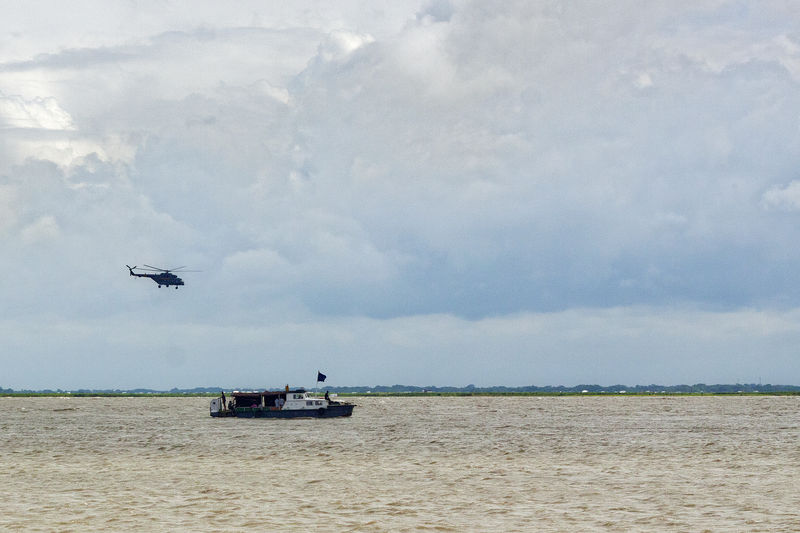

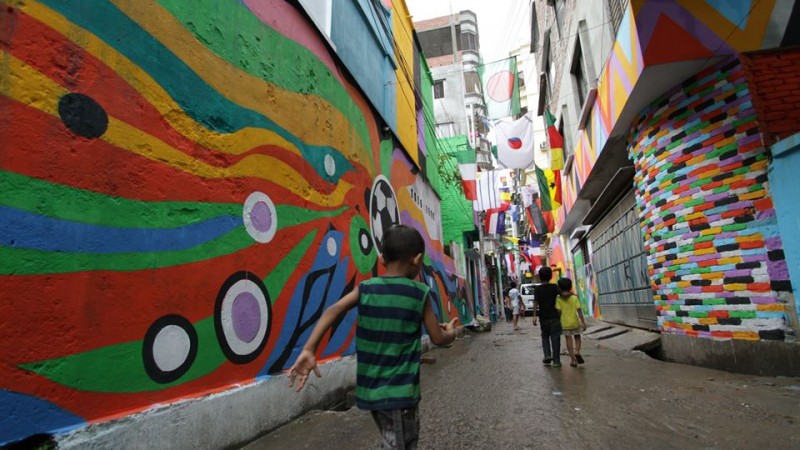
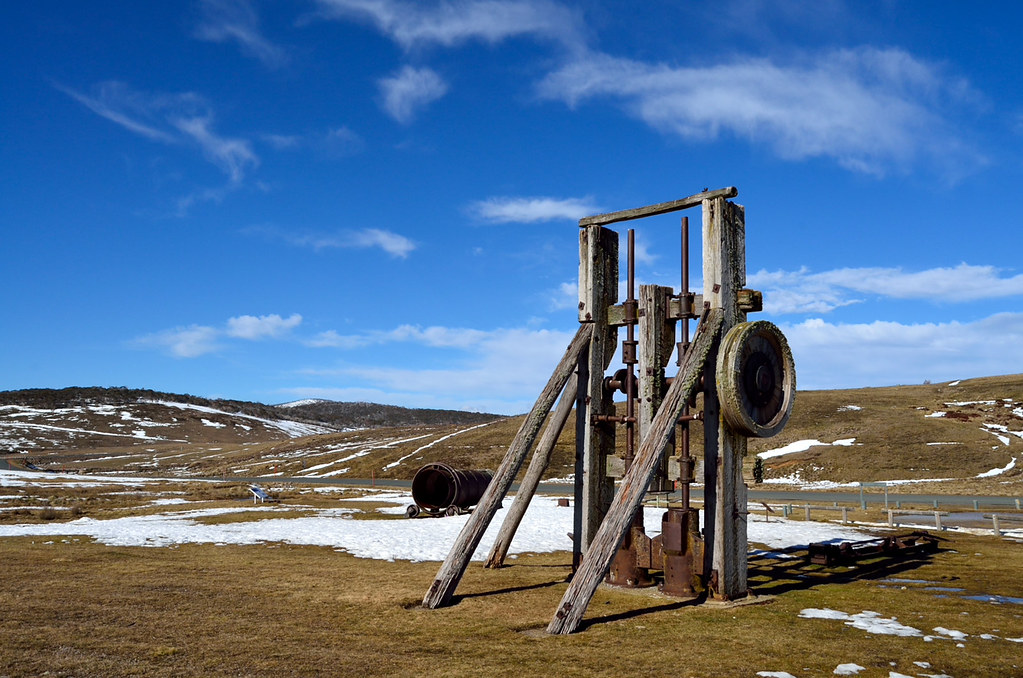

![406786 [640x480]](http://globalvoicesonline.org/wp-content/uploads/2011/07/406786-640x480.jpg)



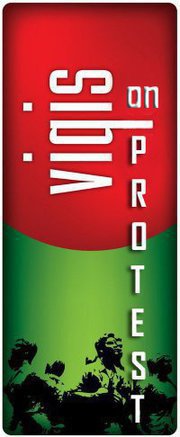
![753845 [640x480]](http://globalvoicesonline.org/wp-content/uploads/2011/07/753845-640x480.jpg)
![753829 [640x480]](http://globalvoicesonline.org/wp-content/uploads/2011/07/753829-640x480.jpg)

![743995 [640x480]](http://globalvoicesonline.org/wp-content/uploads/2011/07/743995-640x480.jpg)
![sharat rally [640x480]](http://globalvoicesonline.org/wp-content/uploads/2011/07/sharat-rally-640x480.jpg)
![744187 [640x480]](http://globalvoicesonline.org/wp-content/uploads/2011/07/744187-640x480.jpg)
